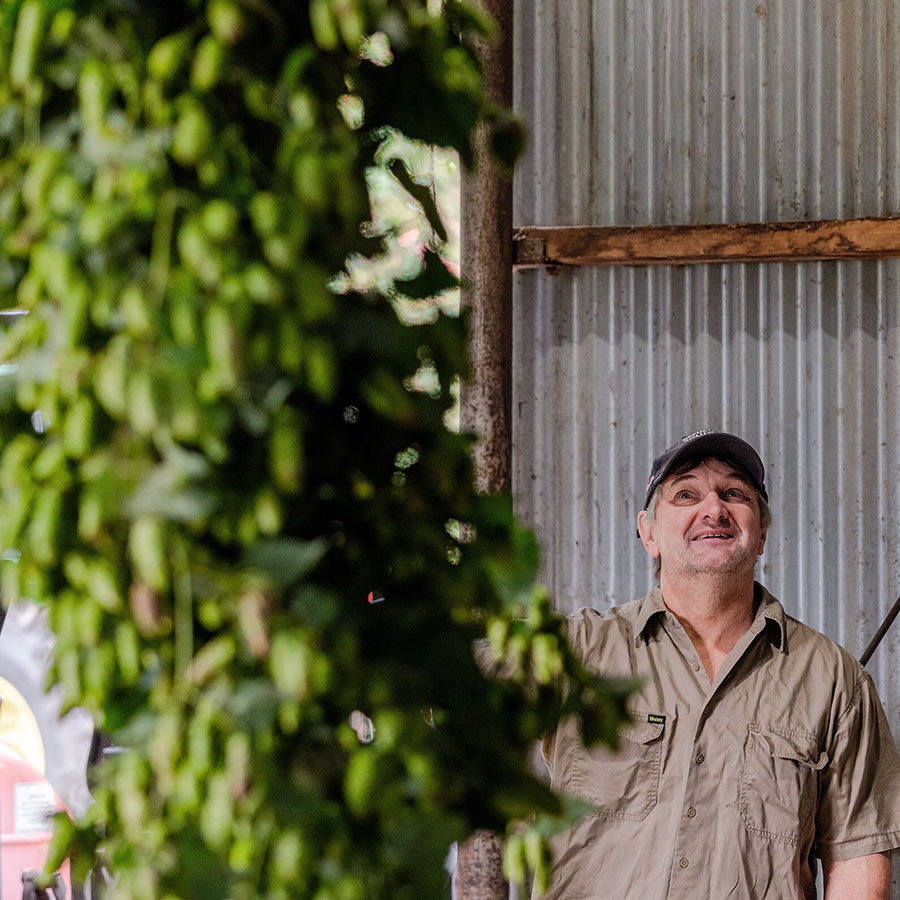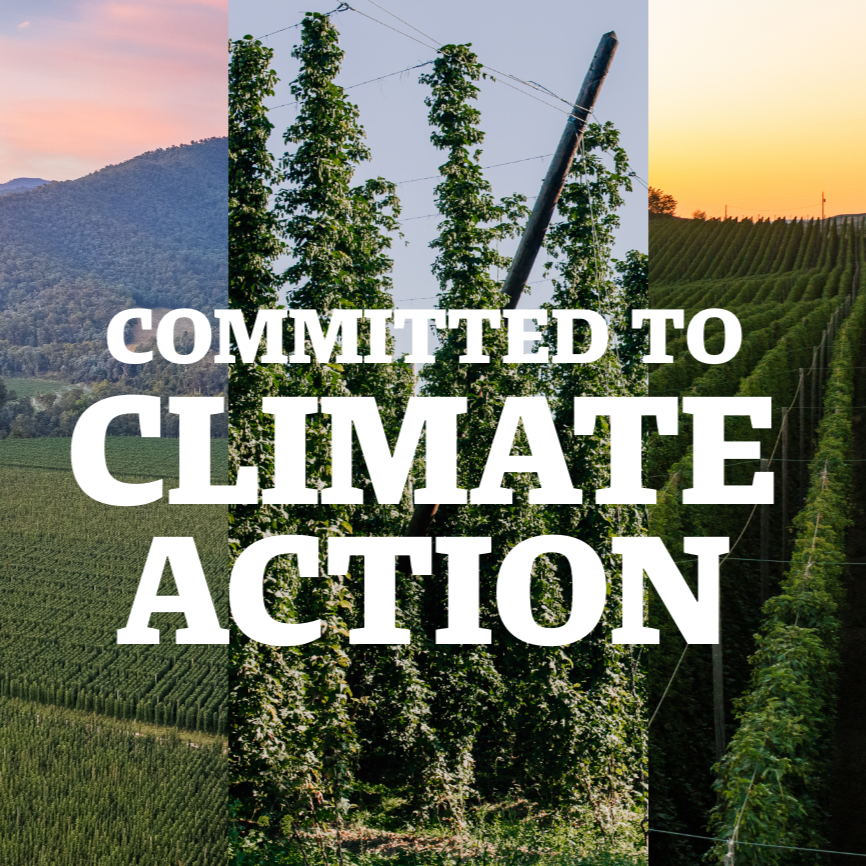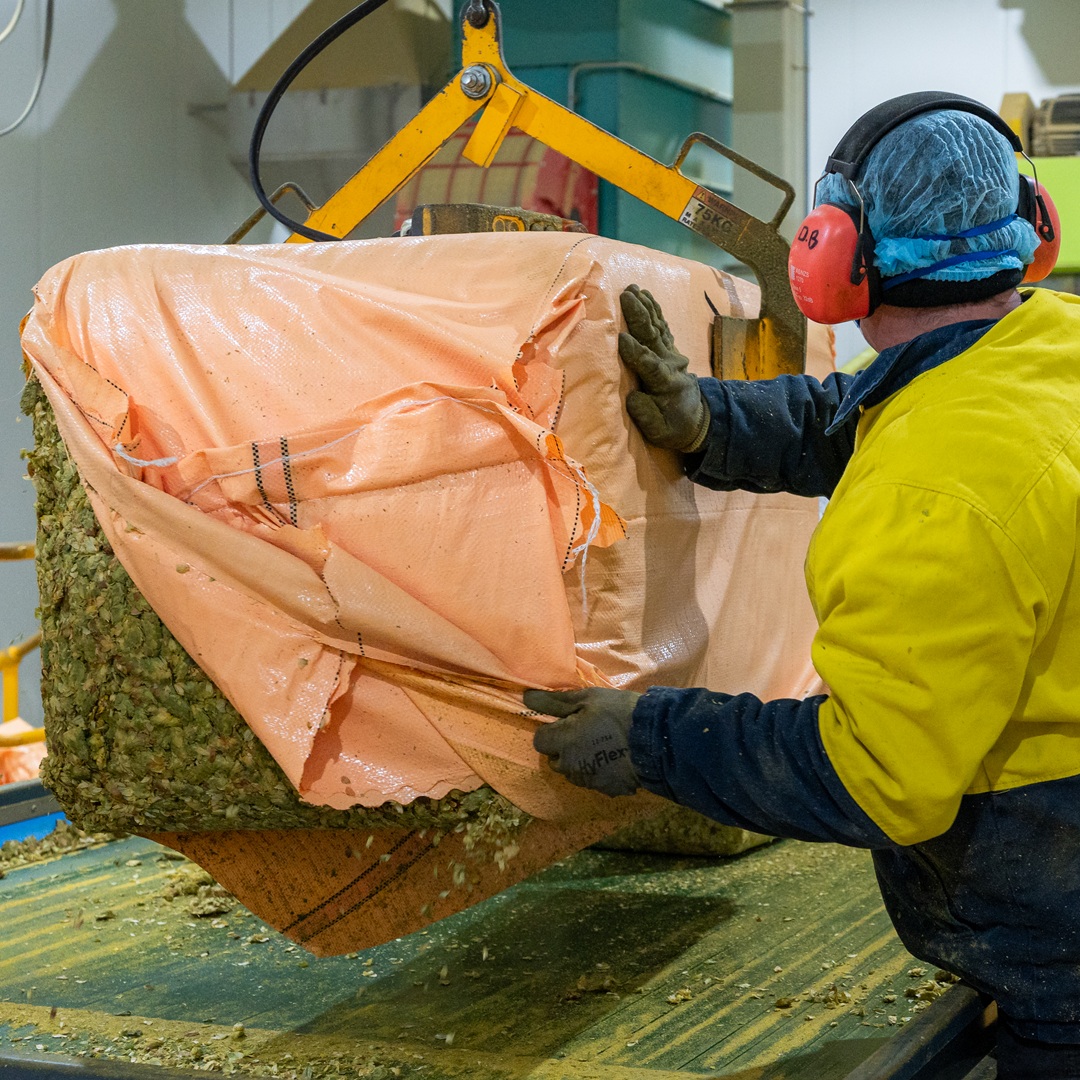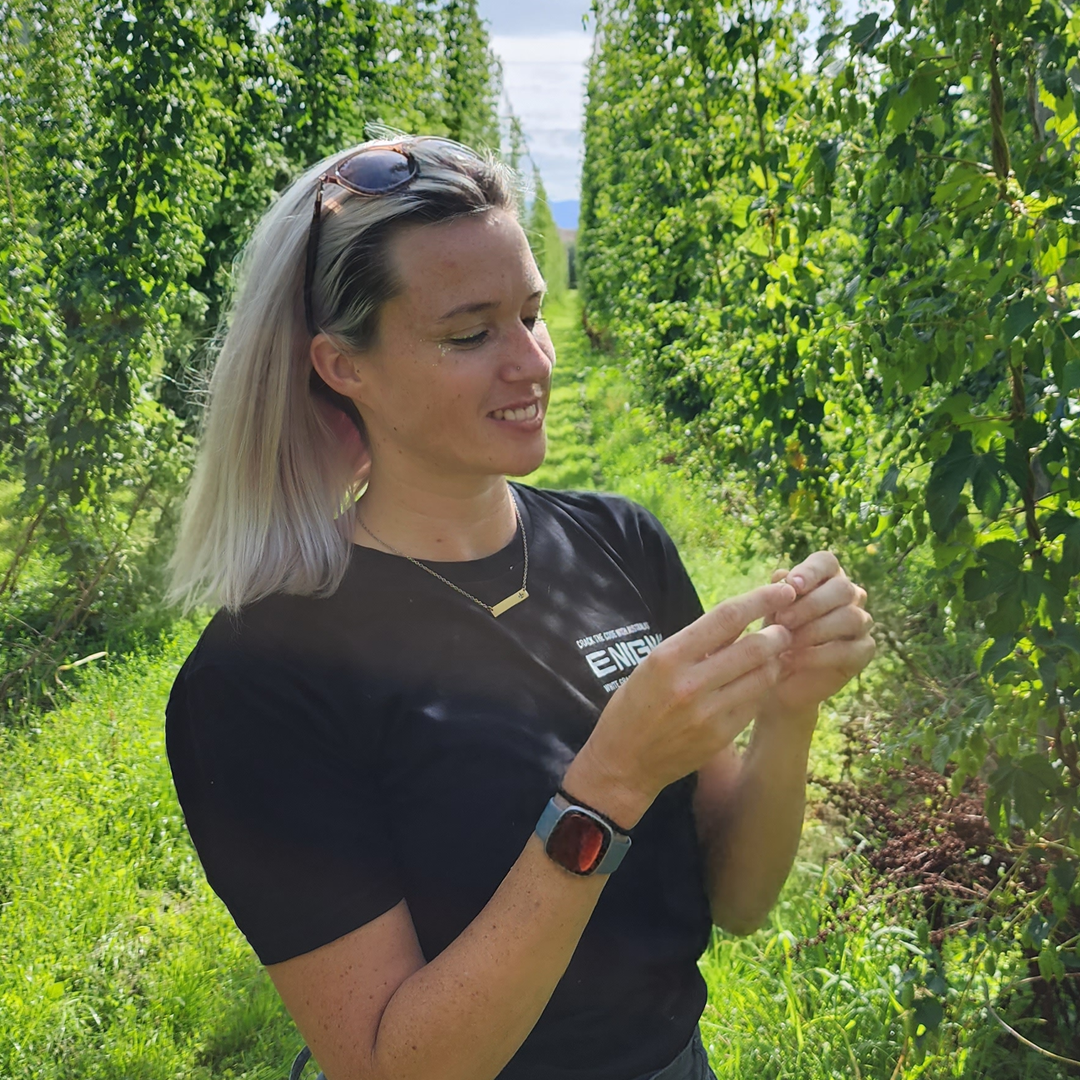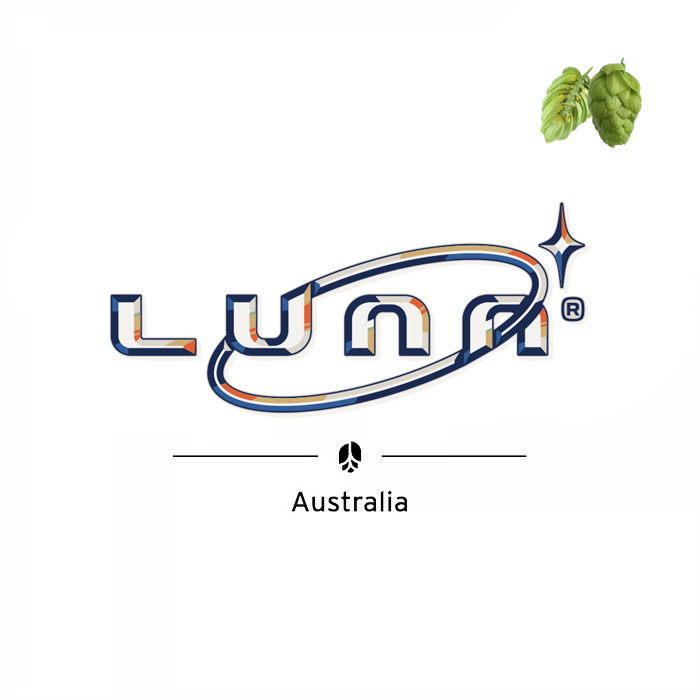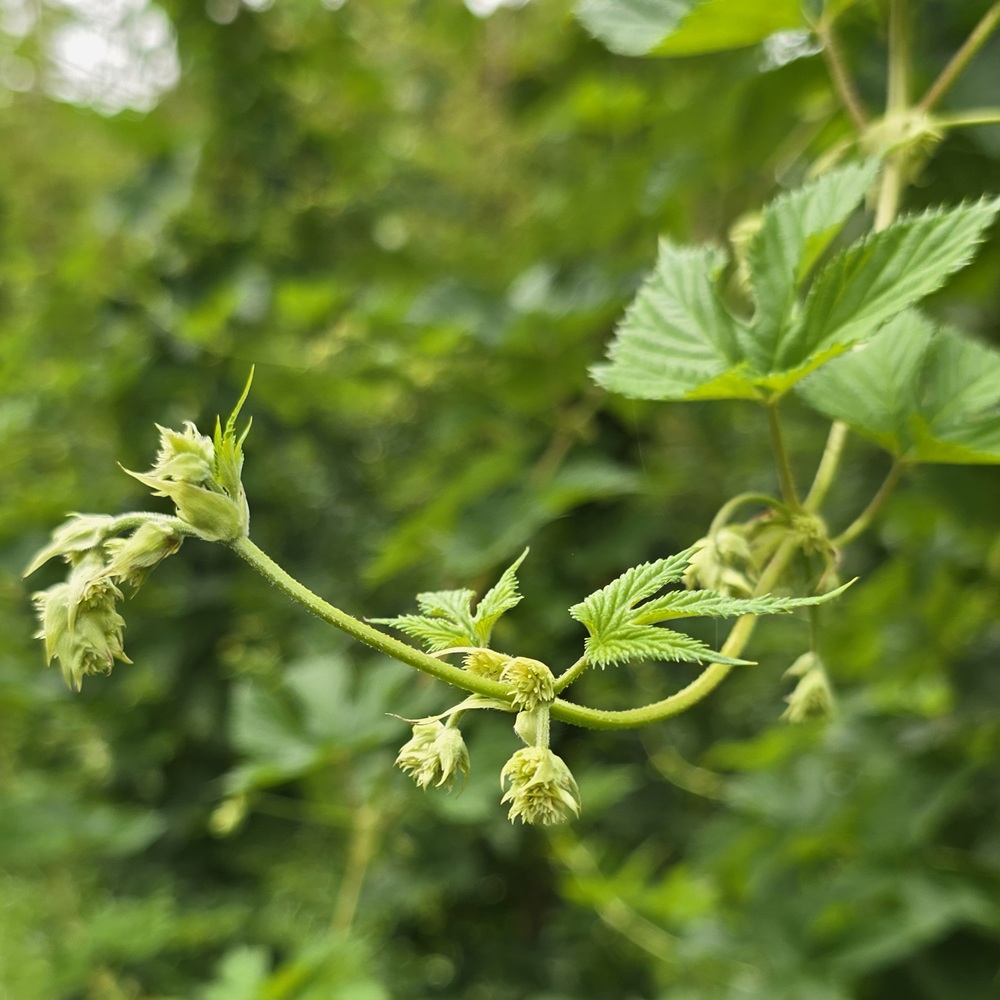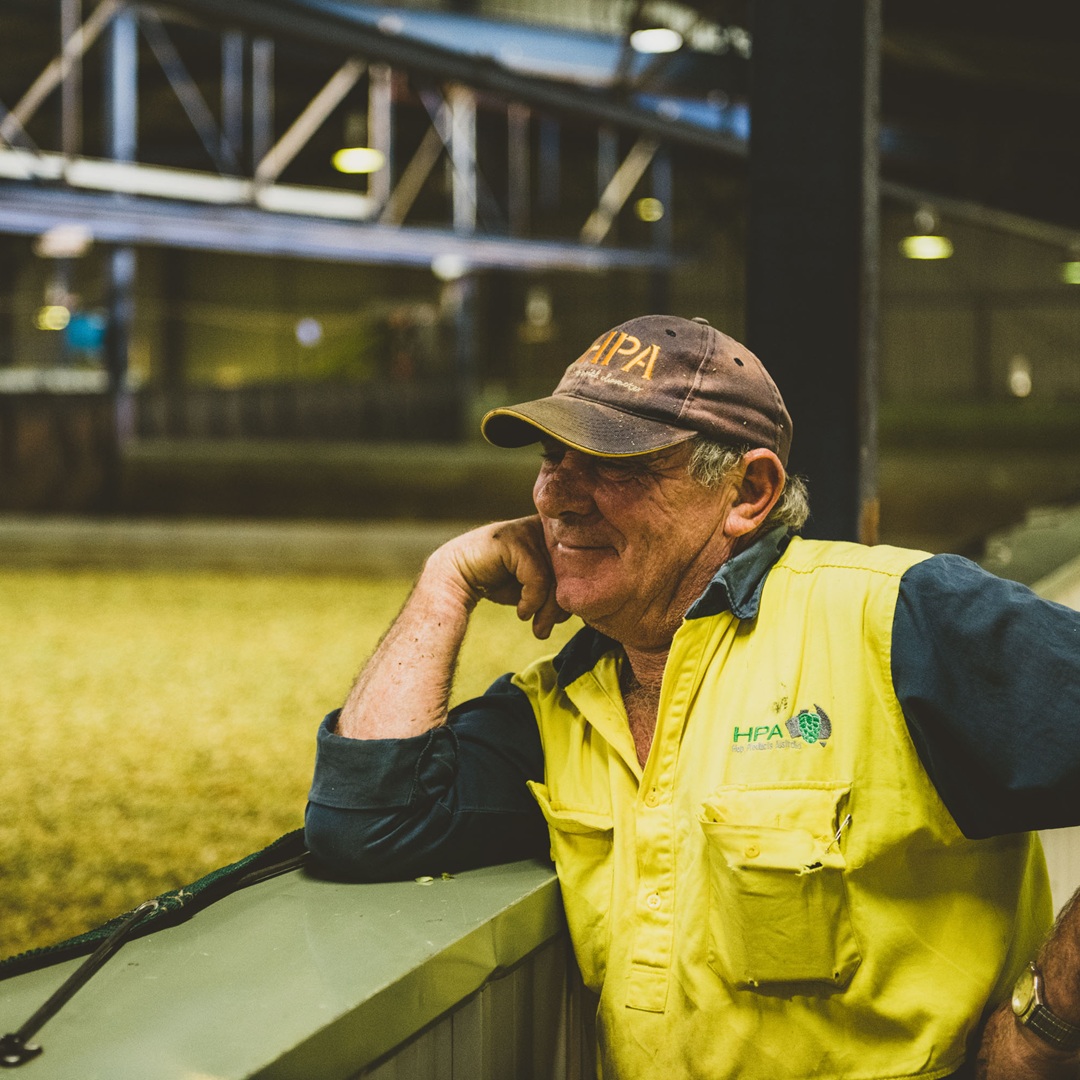HPA have the keys to some premium land where the soil is rich and the water supply is abundant, but we also support other hop growers in north-east Tasmania and north-east Victoria. We entrusted Topaz™ to one of the most experienced hop growers in the country to improve our capacity to meet brewer demand. The Roman family completed their last harvest in 2023, after growing hops for HPA since the 1980s. We can’t thank them enough for the time and effort they’ve invested in growing our Aussie hops over the past 30 years. After drying the final kiln floor, we sat down with Eric Roman to ask a few questions about his career and why Topaz™ will always be his favourite hop.
Q: How did your family get into hop farming?
A: After immigrating from Europe following the end of World War II, our Mum and Dad bought a small farm in Temora, NSW. Dad worked as the local milkman and a farmhand on nearby wheat and sheep properties, but the summer temperatures regularly climbed above 40 degrees so they decided to buy another farm further south with a milder climate. Having looked at land in the Warby Ranges near Wangaratta, they also went to inspect a dairy farm in Carboor where Dad was impressed with the three creeks that ran through the farm, commenting that it reminded him of his home in Poland. Dad asked about some poles and wires he noticed in one of the fields and was told they were for growing hops. He had never heard of hops, but they piqued his interest, and so the dairy farm became a hop farm for the next 60 years.
Q: What is your first memory of the hop farm?
A: I was a 7-year-old staring up at all the poles and wires while picking fruit off the huge amount of blackberries that were growing where to the hops were meant to be.
Q: What is your favourite thing about growing hops?
A: Watching the plants gradually make their way up the string, and the pride you feel at the end of each season after having produced a successful crop.
Q: What’s your least favourite thing about growing hops?
A: Putting in all that hard work only to have a weather event like strong winds or a hailstorm bring it all undone.

Q: How many different hops have you grown over the years?
A: We have grown Custers, Ringwood Special, Pride of Ringwood, Victoria, Super Pride and Topaz. Topaz will always be our favourite. It ticks all the boxes in terms of being the best to grow, producing a consistent yield, being easy to pick and dry.
Q: How many kilograms of hops do you think you’ve dried in your time?
A: It’s approximate, but probably something like 1.2million kilograms between my father and myself.
Q: What’s on the table at morning and afternoon tea?
A: Morning and afternoon tea are a big part of life on the farm. Mum was an exceptional cook. Her apple pie is the stuff of legend. Her grandchildren still use her recipe today. My wife Janine has continued Mum’s legacy, keeping the team supplied with sandwiches, sweets and tea every day at 10am and 4pm.

Q: What kind of people have come to the farm as seasonal workers?
A: We’ve had a lot of people from Carboor, Bobinawara, Whorouly, Wangaratta and overseas come for a single season, but we’ve also had a great crew of regulars who came back season after season. There was a young French couple a few years ago who come for hop training. We didn’t find out until much later that up until they received their first pay they had been living on canned tuna and dry biscuits, and continually ran out of fuel. They were great workers who became great friends, returning for the next few seasons.
Q: What traditional farming tool can’t you live without?
A: It has to be the tractor. We use it almost every day. Oh, and a well-maintained picking machine.
Q: Which technological advancement has made the biggest difference in growing and producing hops?
A: After a flood in 1993, we transitioned to non-cultivation with guidance from Graham Hughes. It significantly reduced working hours and made for more healthy soil and plants.

Q: What do you normally do to celebrate the end of hop harvest?
A: When we were younger we used to head to the pub for a meal. In more recent times we’ve enjoyed some finger foods and a quiet drink at the hop shed. But since this year was special we had a BBQ with the whole team and extended family.
Q: Is there a particular place you’ve always looked at and thought “that’d be a great place to grow hops”?
A: I’ve always wondered why no one has ever grown hops commercially in Kiewa or Mitta Valley.
Q: How do you feel about the new Topaz branding?
A: It so vibrant and colourful, particularly when you’re surrounded by green all day every day.

Q: If you could name our next proprietary hop, what would you call it?
A: Something related to our farm or Carboor. Maybe Carboor Classic, Roman Ruby or Hurdle Creek.
Q: Have you had the opportunity to travel within the hop industry?
A: I’ve travelled to hop farms in Tasmania and New Zealand, and around North East Victoria where there was up to 35 different growers until the mid-1980s. While techniques do vary from farm to farm, no matter where you grow hops you still need a lot of hard work throughout the season, a little bit of luck with the weather, and healthy markets.
Q: Who was your most influential mentor while learning the trade?
A: Dad was our biggest influence. He learnt a lot from Jack Murphy a local Carboor legend and Ray Jarrott from the Handcocks at Myrhee. Some other influences include Graham Hughes, Allan & Gail Monshing, Oliver Ward and Peter Hamilton from HPA, and local hop growers Len Forge, John Munari and Les Earp.
Q: Do you have a desire to pass on your knowledge about this very niche pursuit to the next generation?
A: I’ve already passed it on to my children, nieces and nephews. Unfortunately, none of them have chosen to grow hops as a full time career…yet.
Q: What’s the future of the farm?
A: Allan and I will continue to farm beef cattle.

Q: What’s your favourite beer?
A: I like trying new beers as often as possible. But my all time favourites are Stone & Wood Pacific Ale, Beechworth Pale Ale, and Little Creatures Pale Ale.
Q: What are your thoughts on the growing popularity of craft beer?
A: It’s been a revelation for the hop growing industry, which faced near extinction in the late 1980s to early 1990s. I’m immensely pleased that brewers are using more hops in the brewing process than ever before.
